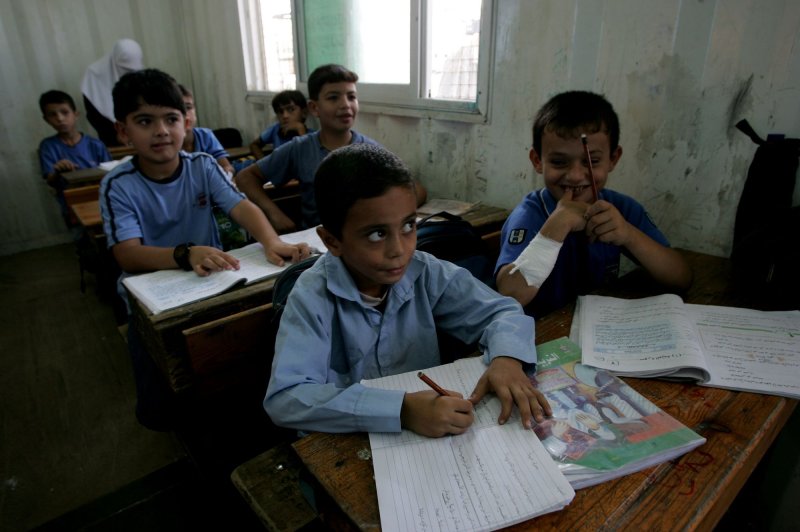A new report by the United Nations Refugee Agency said that while 63 percent of refugee children attend primary school, only 24 percent attend secondary school. Photo by Ismael Moham/UPI |
License Photo
Aug. 30 (UPI) -- More than half of all refugee children do not attend school, the United Nations Refugee Agency said Friday, warning host countries to correct the situation or "pay the price."
"We need to invest in refugee education or pay the price of a generation of children condemned to grow up unable to live independently, find work and be full contributors to their communities," U.N. High Commissioner for Refugees Filippo Grandi said in a statement.
According to Stepping Up: Refugee Education in Crisis, the UNHCR's new report released Friday, of the 7.1 million refugee school-age children, only 3.7 million go to school.
However, the issue becomes more acute when refugee students become of age to attend secondary schools.
While the report states that 63 percent of all refugee children attend primary school, compared to 91 percent globally, only 24 percent receive a secondary education, it said.
The report said the steep decline from primary to secondary school attendance among refugee children is attributed to the lack of funding for their education.
"The effect is devastating," the report said. "Without the stepping stone of secondary school, progress made over the past year will be short-lived and the futures of millions of refugee children will be thrown away."
According to the report, education not only aids refugees in recovering from the trauma of being displaced but is their route to the labor market and economic self-sufficiency while ending their dependency on others.
It also plays a role in not only protecting the refugee children but the communities in which they live.
"If they have nothing to occupy their day and no clear employment prospects, adolescents are more vulnerable to exploitation and more likely to turn to illegal activities out of desperation," the report said.
To ensure refugee children continue education into secondary schools, the UNHCR called on governments, the private sector, educational organizations and donors to support its new initiative to build new schools and refurbish old ones, train teachers and give financial support to refugee families to cover school expenses.
The UNHCR also urged countries to adopt "a more realistic approach" towards documentation for refugee students as many are barred from the classroom because they left behind transcripts and course completion certificates when fleeing persecution and oppression.
"School is where refugees are given a second chance," Grandi said. "We are failing refugees by not giving them the opportunity to build the skills and knowledge they need to invest in their futures."















